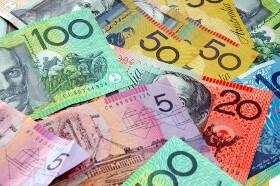
This was definitely not good for the Australian dollar as the nation’s central bank unexpectedly reduced its interest rates and hinted that more rate cuts are possible.
The Reserve Bank of Australia surprised the Forex market, easing its monetary policy further even though analysts have predicted that the bank would not make any changes. Moreover, the central bank said that it has scope for additional easing. The decision undermined the strength of AUD, which rallied after positive employment data, but only briefly.
USD was one of the best performers against AUD, gaining strength from positive US economic data. AUD dropped even against JPY, which by itself was rather weak.
AUD/USD dropped from 1.0296 to 1.0010, the lowest weekly close since June. EUR/AUD advanced from 1.2722 to 1.2968, the highest weekly closing price since February. AUD/JPY declined from 102.12 to 100.39 during the week, but bounced and closed at 101.68.
If you have any questions, comments or opinions regarding the Australian Dollar,
feel free to post them using the commentary form below.